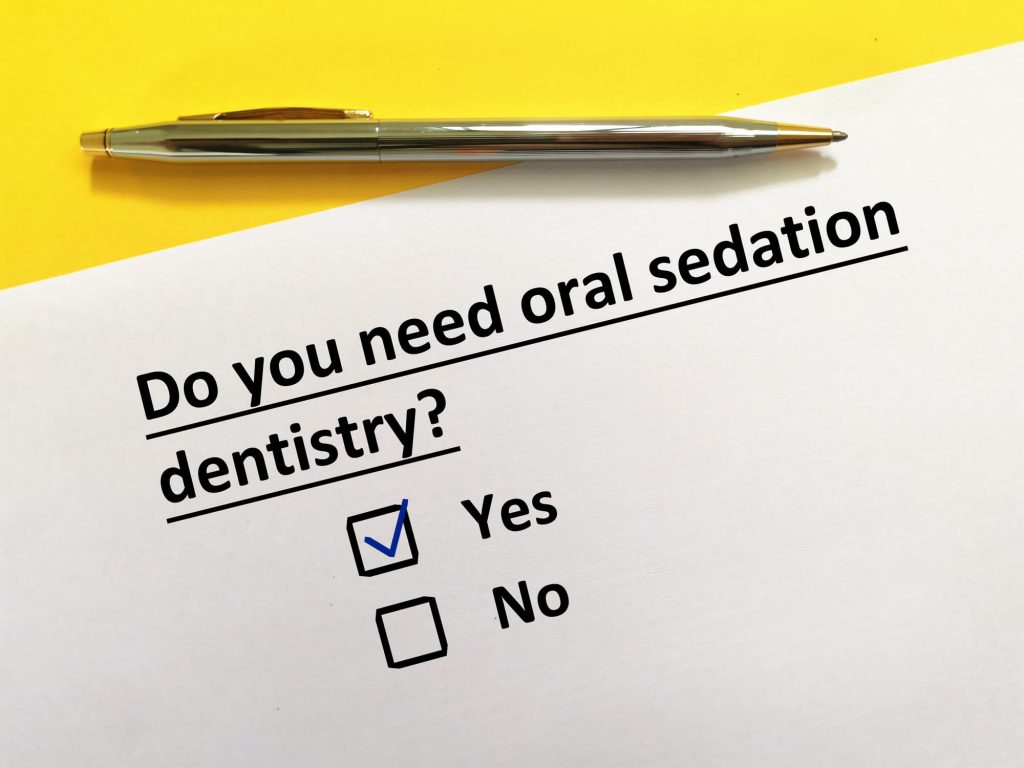Sedation dentistry in Clayton is often necessary to keep patients calm and relaxed during a dental procedure. Despite technological advancements that make treatments as conservative as possible, dental fear remains one of the biggest factors that hold people back from receiving treatment. Some of these fears stem from previous traumatic experiences, while others are based solely on exaggerated depictions of dentists.
But besides relieving anxiety, sedation dentistry keeps patients still during lengthy dental procedures. If you need to undergo multiple dental procedures at once, your dentist may also suggest it. However, dental sedation isn’t necessarily required.

Common Procedures That Use Sedation Methods
Wisdom Teeth Extraction
Wisdom tooth extraction is a surgical procedure that involves removing one or more wisdom teeth. If a wisdom tooth is impacted, it can lead to infection and other oral health complications. For this reason, your dentist will suggest having it pulled.
The tooth doesn’t always have to be impacted, but sometimes dentists recommend extraction as a preventive measure. Although the procedure can only take up to half an hour, oral surgeons prefer to sedate the patients to keep them still and relaxed so they can efficiently access deep-rooted teeth without worrying about putting patients in pain.
During the consultation, your oral surgeon will ask questions to determine your anxiety level and preferred sedation route.
Root Canal Treatment
If there is a dental procedure that scares people off, it’s none other than root canal treatment. Patients dread the idea of a root canal because of the myths and misconceptions about it. Before you say know, it’s essential to learn the facts. When an infection in your tooth reaches the inner chamber of your teeth, known as the dental pulp, you will experience severe pain.
The purpose of root canal treatment is to stop the spread of the infection by removing the inflamed and infected pulp, cleaning and disinfecting the area to avoid future re-infection, filling the empty chamber with gutta-percha, and then lastly, sealing it with a crown or a filling.
When the procedure is complete, the pain will be relieved. Therefore, root canal therapy doesn’t cause pain but instead relieves it. This is something patients need to know. When you are advised to undergo root canal therapy, your dentist will talk to you about sedation dentistry.
However, it’s not mandatory. Some patients prefer not to be sedated, but if you are tense and anxious, you can benefit from it. Oral sedation and oxide sedative are commonly used for root canal treatment.
Simple Tooth Extraction
Younger patients may take a lot of convincing to have their teeth pulled. Typically, they cry, move around, and throw tantrums, making it impossible for the dentist to perform the procedure safely. Usually, these patients are required to undergo extraction for orthodontic purposes.
Tooth extraction doesn’t just cause anxiety and panic in younger patients. Even adults are terrified of it, so dentists often prescribe an oral sedative before the procedure to relieve patient anxiety. The sedative works by relaxing the patient physically and mentally so that they can sit still while the dentist does their job.
Dental Implant Surgery
When you lose your teeth, whether it is due to trauma, severe decay, or advanced-stage gum disease, you should replace them at the soonest possible time before complications set in. Tooth loss can negatively impact your self-esteem and oral function.
If you prefer to get dental implants and qualify for the procedure, sedation dentistry can help you get through it. When patients are sedated, the procedure seems quicker than it is.
Dental implant surgery is an invasive procedure that involves slicing open a tiny portion of your gum tissues to expose the bone underneath. The bone is where the metal implants will be embedded.
After some time, the bone tissues will naturally integrate with the metal implant rods in a process known as osseointegration. Since it is considered oral surgery, your dentist will advise sedation. The type and level of sedation will depend on the preference of the oral surgeon, your comfort level, and the invasiveness of the procedure.
If you only get one to two dental implants, minimal to moderate sedation will already suffice. However, if you have dental phobia or severe anxiety, your oral surgeon may recommend a stronger form of sedative. During your initial consultation, be honest about your fears and concerns so you can be thoroughly evaluated.

Do You Need Sedation Dentistry in Clayton?
When you are anxious and afraid to the point where you’d rather deal with the pain instead of getting treated, ask your dentist about sedation dentistry. At Tyron Family Dentistry, we aim to keep you comfortable and relaxed during your treatment. Our expert dental team has years of experience delivering safe and efficient care. Contact us today for an appointment.

